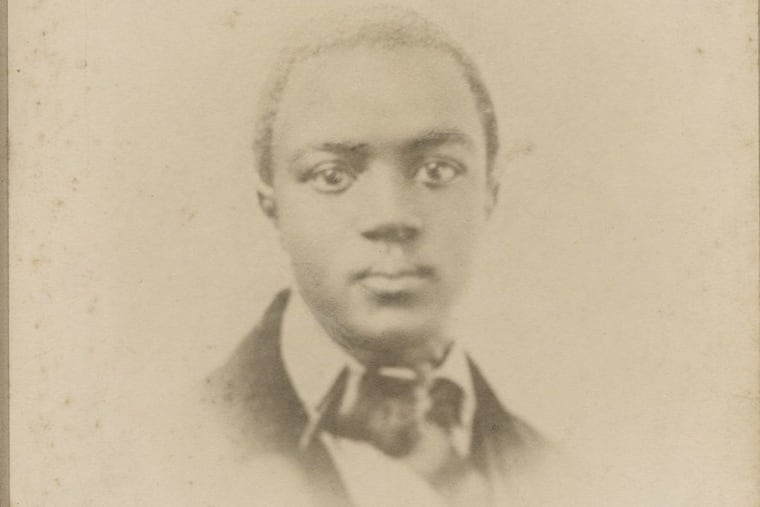The Philly origins of Cheyney University
The Institute for Colored Youth was founded by Quakers in 1840 with money bequeathed by an elder of the church, Richard Humphreys, who was born to a slave-trading family in the British Virgin Islands.

In her memoir, Reminiscences of School Life, and Hints on Teaching (1913), Fanny Jackson Coppin recalls an anecdote that Ebenezer Don Carlos Bassett shared with her.
Bassett served as the principal of Philadelphia's Institute for Colored Youth (ICY) from 1856 to 1869 (Coppin would hold the same position from 1869 to 1902). During his tenure, Bassett received a white visitor who had written a book arguing, in Coppin's words, that "the Negro was not a man."
This individual had heard of ICY's extraordinary students, and wanted to see for himself the academic aptitude of the school's all-black student body. "He brought a friend with him, better versed in algebra than himself," Coppin writes, "and asked Mr. Bassett to bring out his highest class."
The principal — presiding over what was perhaps the most influential black secondary school of the period — brought out the Philadelphia-born Jesse Ewing Glasgow Jr. The promising young scholar made quite the impression.
"Just as fast as they gave the problems, Jesse put them on the board with the greatest ease," recalls Coppin. "This decided the fate of the book, then in manuscript form, which, so far as we know, was never published."
ICY was founded by Quakers in 1840 with money bequeathed by an elder of the church, Richard Humphreys, who was born to a slave-trading family in the British Virgin Islands. After moving to Philadelphia and adopting the Quaker faith, he grew remorseful of his family history, leading him to leave one-tenth of his estate to benefit the education of African American youth.
The school moved from its rural home outside of Philadelphia to Lombard Street between Seventh and Eighth Streets in 1852. While focused on training teachers in order to serve Philadelphia's dramatically underserved African American youth (W.E.B. DuBois surmised that half of Philly's black population was illiterate around the time of ICY's founding), the school would also become a hub for black activism and social advancement, evidenced by the influential educators and intellectuals who made up its faculty.
Bassett was a prominent abolitionist who appeared at public events with the likes of Frederick Douglass. In a famous speech rallying African Americans to take up arms shortly after the Battle of Gettysburg, Bassett called for fellow black Philadelphians to "join in fighting the battles of liberty and the Union," because "our race is doomed on this soil of our birth" should the North lose.
Bassett would continue in his post at ICY until President Ulysses S. Grant appointed him ambassador to Haiti, making him the United States' first black diplomat.
Throughout the years, the school's faculty included other highly accomplished change-makers, including Richard T. Greener, a Philadelphia native and the first black graduate of Harvard.
Octavius V. Catto was a former ICY student who also became a teacher at the institute. He was an influential activist in the fight for racial equality in the political realm. In 1871, he was killed while participating in a voting rights demonstration in Philadelphia. This tragic story shows the extremely prejudicial and violent social climate that ICY's students and faculty inhabited.
The school's students excelled despite the obstacles posed by racism. William Adger, who graduated from ICY in 1875, would become the first black student to receive a degree from the University of Pennsylvania.
Other former students would go on to confront the powers that be. ICY graduate Caroline R. Le Count became a Philadelphia school principal who fought against discrimination against African American faculty in the city's schools during the 1870s.
In 1902, the school relocated to Cheyney Station, 25 miles outside of Philadelphia. It would change names throughout the 20th century to reflect its evolution. Starting in 1930, the school began offering a bachelor of science in education, and would first achieve accreditation in the 1950s. It would take on its current name, Cheyney University, in 1983.
What began as a small secondary school where Glasgow — ICY's first graduate — single-handedly changed a racist's mind through his mathematical prowess now holds the distinction as the oldest of the historically black universities and colleges.
Patrick Glennon is a communications officer at the Historical Society of Pennsylvania. pglennon@hsp.org